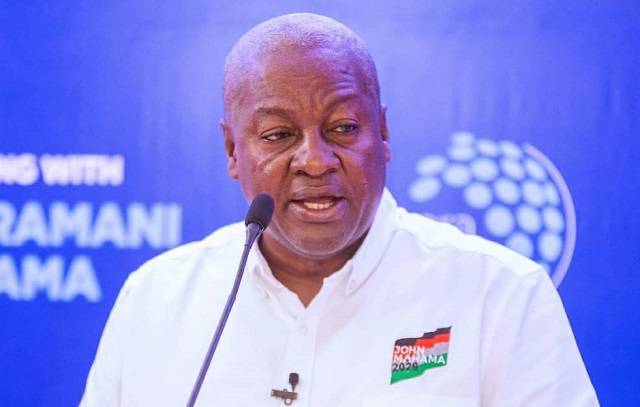President-elect John Dramani Mahama has shared his administration's plans to focus on the digital economy and financial technology (fintech) as key drivers of economic recovery, job creation, and improved living standards.
In a December 16, 2024, interview with DW News, Mahama outlined his commitment to fostering opportunities for young Ghanaians through innovative policies designed to stimulate growth, enhance productivity, and attract foreign investment.
“One of the main priorities for the new administration is improving livelihoods,†Mahama explained. “While we will continue to invest in infrastructure, we will also tackle issues affecting livelihoods by prioritizing the digital economy, fintech, the pharmaceutical industry, and agricultural and agro-processing value chains.â€
Addressing youth unemployment remains a primary concern for Mahama, who emphasized that the digital economy will play a pivotal role in creating jobs. His government plans to offer capital and incentives to small and medium enterprises (SMEs) to help them expand and succeed.
Additionally, Mahama called for a more transparent and accountable approach to economic management, committing to reduce public sector waste and recover misused state funds. “Anyone who serves in government must be prepared to answer to the public for their actions,†he stressed.
Mahama pointed to the Ghana Export-Import (Exim) Bank, a creation of his previous administration, as a crucial tool for attracting investments in sectors that can boost exports and create jobs.
He highlighted agriculture and agro-processing as essential sectors for targeted investments, stating that these areas would help strengthen value chains, increase productivity, and drive economic growth.
The President-elect also revealed plans to introduce a 24-hour economy policy within the first 120 days of taking office. This initiative will encourage businesses to extend their operating hours, generating more jobs and increasing production.
“We want to capitalize on opportunities under agreements like the African Continental Free Trade Area (AfCFTA) and the African Growth and Opportunity Act (AGOA),†Mahama noted. “We will offer incentives to businesses that can extend their hours, boost production, and hire more workers. With over 60% of the population being youth, we must attract foreign investors, enabling businesses to operate around the clock and create jobs for young people.â€
Mahama described his vision as a “reset†for Ghana, aiming to address inefficiencies in governance, economic management, and national development. He promised a new approach to debt management, ensuring transparency in how loans are obtained and spent on critical projects.
He reiterated the importance of agriculture in economic recovery, stressing its role in job creation and boosting exports. His administration plans to provide support to farmers, including incentives and investments in agro-processing, to enhance Ghana's capacity to produce goods for local and international markets.
On tackling corruption and government inefficiency, Mahama emphasized the need to restore public trust. He committed to reducing the number of ministers and political appointees, which he believes will improve fiscal discipline and reduce wasteful spending.
“The budget deficit must be addressed urgently. We will focus on increasing revenue, controlling spending, and ensuring accountability,†Mahama said.
In closing, he reaffirmed his dedication to stabilizing the economy, fostering innovation in the digital sector, and making Ghana a more attractive destination for business.
“Youth unemployment is our biggest challenge,†he stated. “We aim to expand farms, set up factories, and offer incentives to the private sector to create opportunities for young people. This will be our main focus.â€



No comments yet
Be the first to share your thoughts!